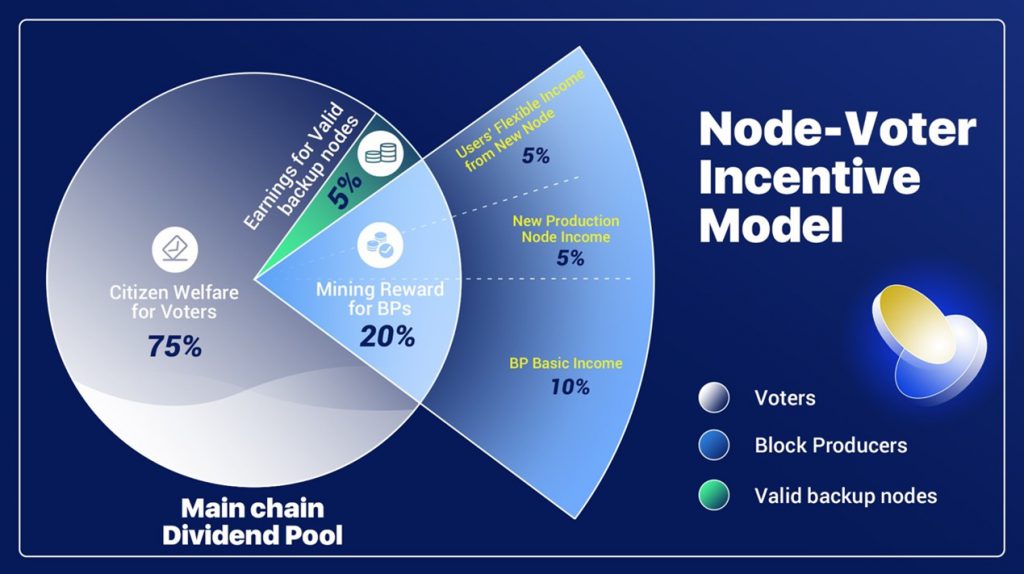With a total of 4,593,284 valid tickets (which equates to more than 4.5 M ELF tokens/ $2.34M) locked on the mainnet governance system, aelf blockchain opened its globalized node election on Nov. 18th, 2021. Candidates will join the governance system equally, being selected or voted with locked tokens as tickets. The publication enabled the listing of well-prepared candidate nodes immediately. The listed candidates include blockchain heavyweights like Huobi Pool, 8BTC, bountyblok, and RockX.
So why is this important? How could the elected nodes contribute to the construction and development of aelf’s networking? In this article, we will walk you through why this event has attracted qualified candidates; how the community could benefit from democratic voting; and we will take a glimpse into aelf’s promising ecological future.
aelf Motivates Ecology Constructors with Bountiful Profits
Thanks to the aelf Economic and Governance Whitepaper, aelf mainnet is capable of locking a significant amount of assets while embracing powerful node partners by providing considerable rewards.
On one hand, there is a low threshold with high APY to become an aelf production node. aelf nodes run on cloud service centers, the costs of which are lower than the traditional physical format. Candidate nodes are required to stake 100,000 ELF tokens to participate in the election. Once elected, production nodes on aelf mainnet could receive the income with the APY at more than 95.6%. The triple features make aelf a more alluring choice for nodes in comparison to others in the market.
On the other hand, there is a very profitable incentive mechanism on aelf mainnet. ELF holders can receive a weekly Citizen Welfare by staking their token assets to vote for the candidate nodes. The Citizen Welfare scales 75% of the main chain dividend pool.
“aelf voting session is a zero barrier to entry free system, connecting voters who are looking to support quality Block Producers (BPs) while being rewarded with a percentage of the additional BP income,” said Haobo Ma, CEO of aelf.
The Constructors’ Feedback to the Network with Integrated Capabilities
Similar to the proof-of-stake (PoS) consensus, aelf deployed its own AE-styled delegated PoS consensus, where validators are voted for by the rest of the token holders on the network.
According to aelf, 17 elected BPs will participate in confirming the transactions of the network. Once elected, the BPs will then be tasked with upholding the integrity and accuracy of the network by coming to a majority consensus on data or transaction blocks that must be added to the network. Other than the pure stake of ELF tokens, BPs also invest in the network in the form of infrastructure, community support, development, and many more.
Shortly, BPs will join mainnet aelf’s inaugural Top of OASIS hackathon as judges. Later this year, they will also function as the decision-makers in the sidechain auctions and many more. The collective actions can have a real impact on the future of the gradually opening aelf ecological network.
More information will be subject to aelf team on Twitter and Telegram.


